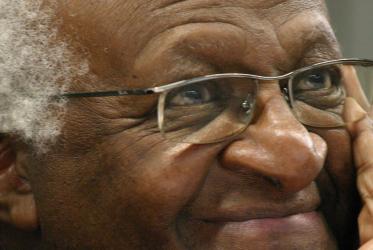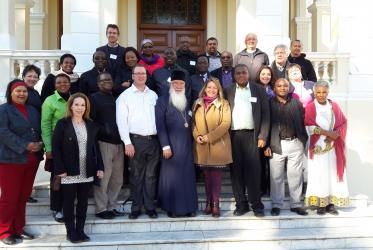Displaying 1 - 10 of 10
12 October 2021
WCC mourns passing of Prof. Vuyani Vellem
09 December 2019
Churches in southern Africa stand against violence, xenophobia
10 October 2019
Preventing incitement to violence which could lead to atrocity crimes in Africa
09 - 11 May 2016
Addis Ababa, Ethiopia




